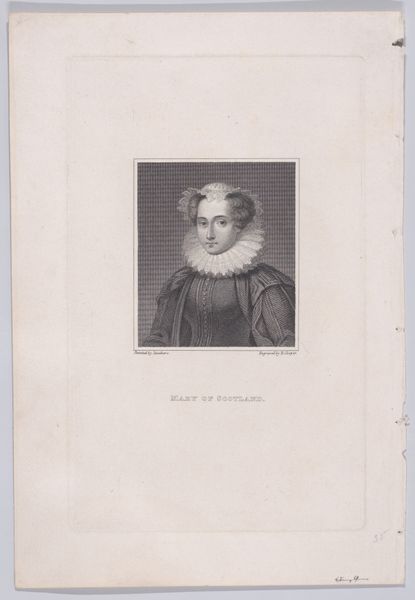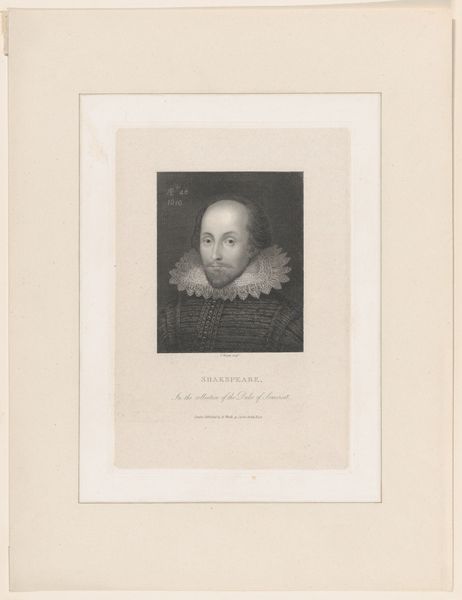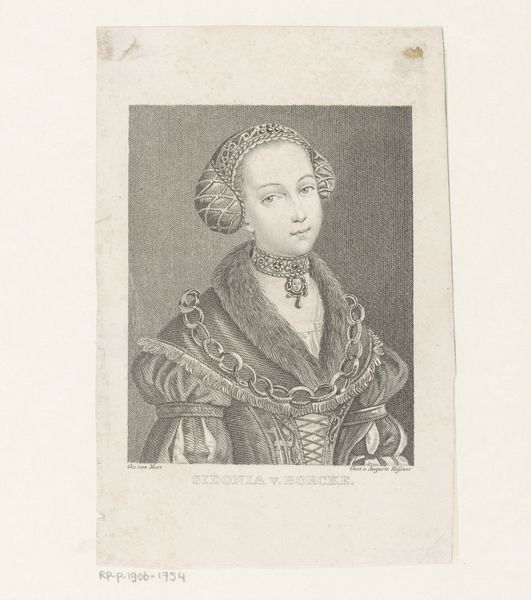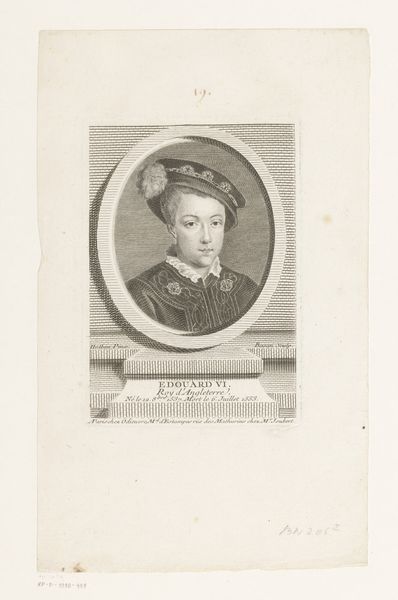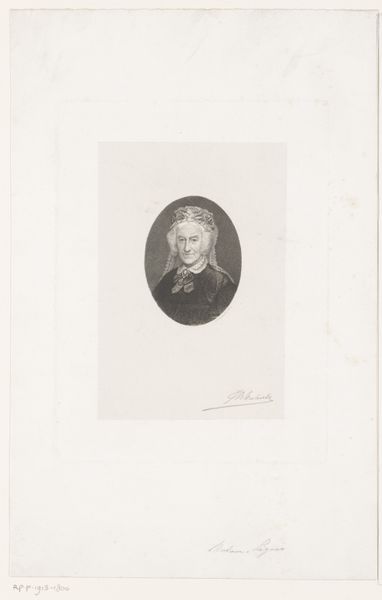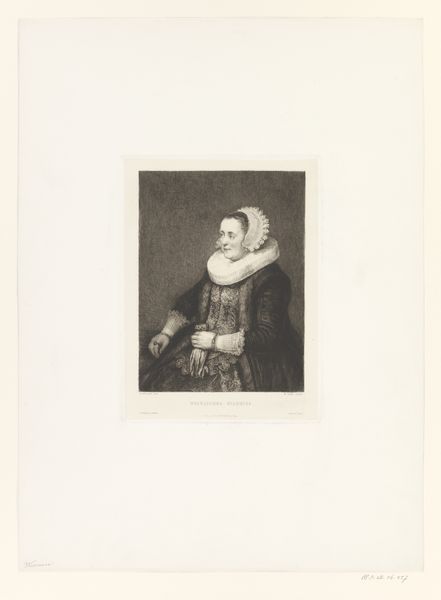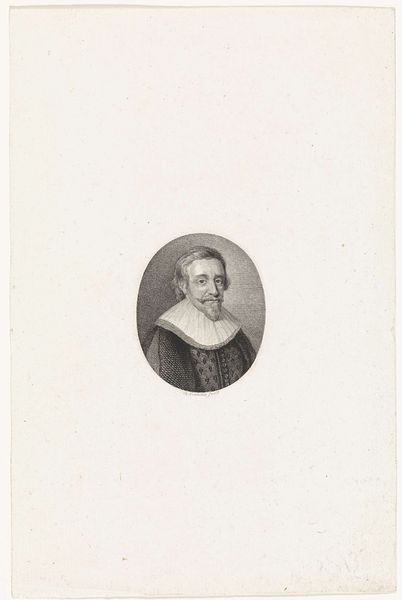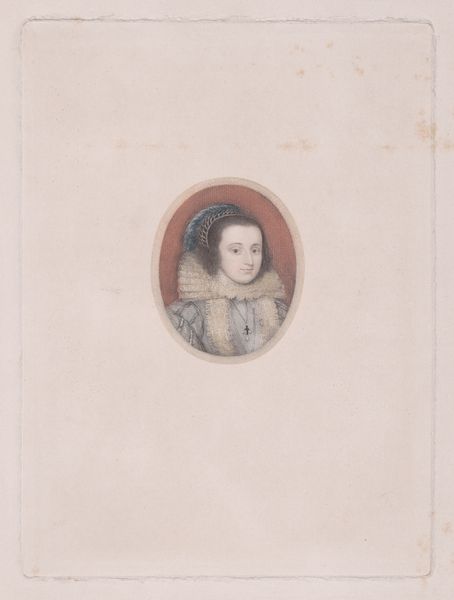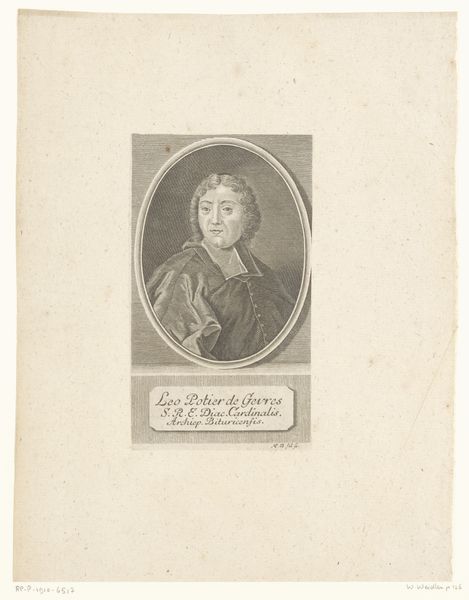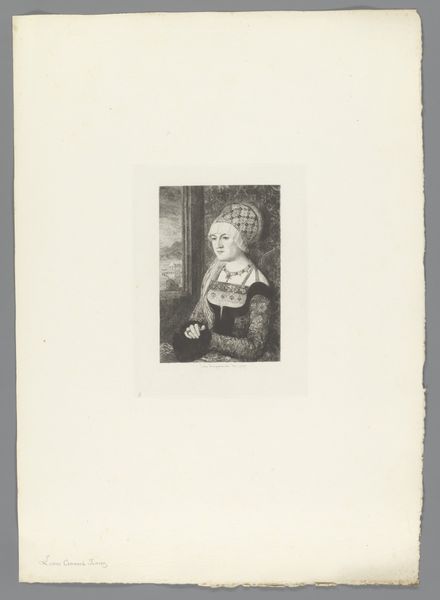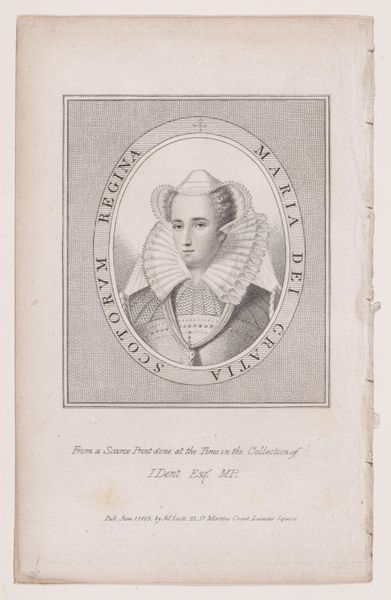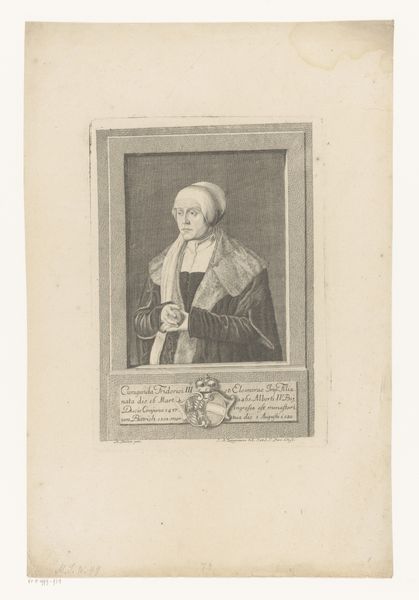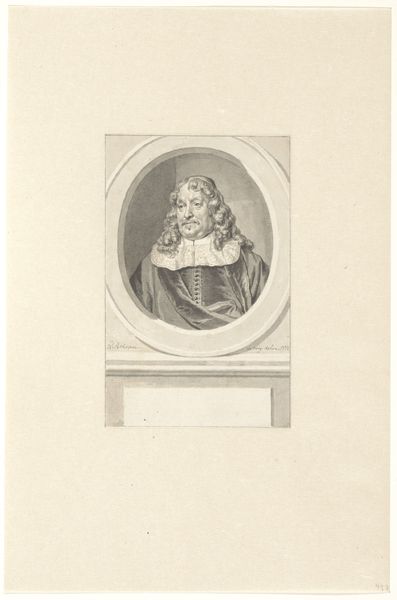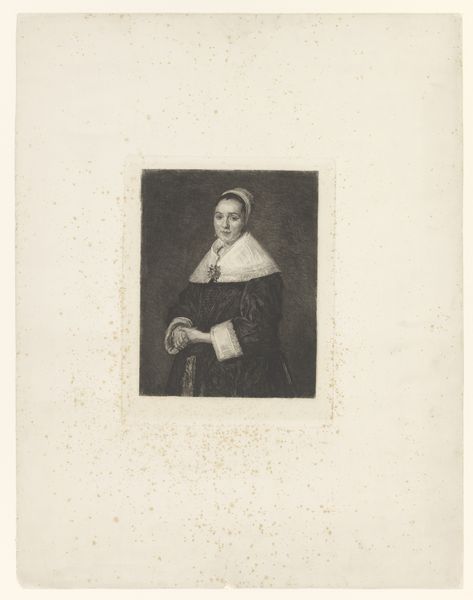
drawing, print, intaglio, engraving
#
portrait
#
drawing
# print
#
intaglio
#
history-painting
#
engraving
Dimensions: Plate: 7 3/16 × 4 11/16 in. (18.2 × 11.9 cm) Sheet: 8 1/8 × 5 1/2 in. (20.7 × 14 cm)
Copyright: Public Domain
This print of Mary, Queen of Scots, was made by Robert Cooper around the turn of the 18th century, using engraving on laid paper. The image is created by carefully incising lines into a metal plate, which then holds ink to be transferred to the paper. Look closely, and you’ll see how the varying density of these engraved lines creates tone and volume. This was a highly skilled process, demanding precision and control, and reflects the engraver's mastery over the material. Prints like these played a crucial role in disseminating images and ideas in the early modern period. They were relatively inexpensive to produce, making them accessible to a wider audience, and were a key way to establish a visual culture. The act of replicating Mary, Queen of Scots, through this mechanical process speaks to the growing power of print media and its influence on shaping historical memory. Ultimately, understanding the materials and making of this print helps us appreciate its wider social and cultural significance, and challenges notions of what constitutes fine art.
Comments
No comments
Be the first to comment and join the conversation on the ultimate creative platform.
